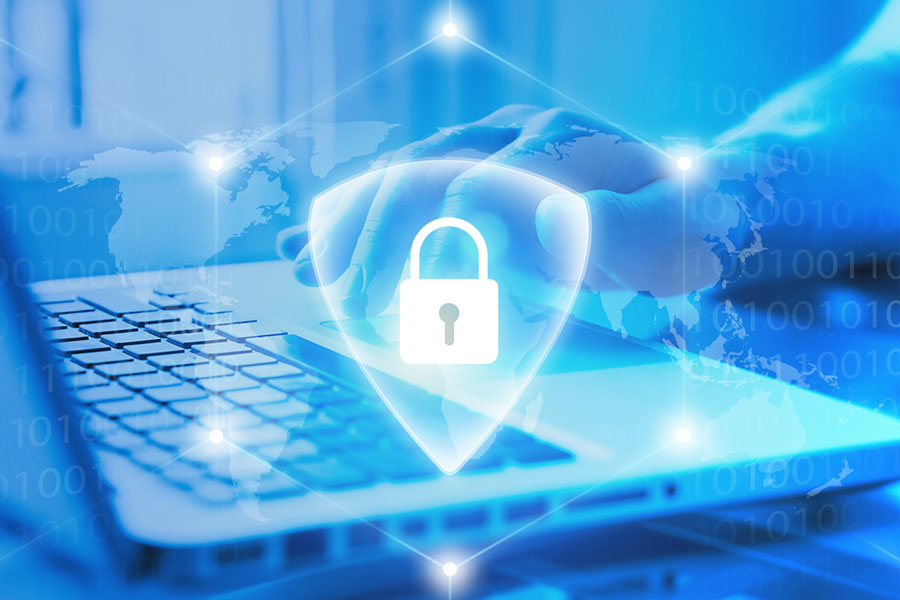
Biometric Identity Verification Today
Biometric Identity Verification Infringes on the Rights of Americans. The High Tech Invasion of Our Privacy is Becoming Common and Accepted in Police-State USA.
Biometric identity verification is no longer a futuristic technology but is now being used all around the world to verify the identity of individuals.
Most of us have already been exposed to other technological gadgets such as smart cards and touch keypads.
So do biometric devices like facial recognition, iris recognition, and fingerprint readers really offer more security than systems and techniques used up until now, or is there more to it?
Many corporations, organizations, as well as the United States government seem to think there is a fair trade-off.
Security experts have been quoted to say that biometric technology is much more secure than other methods of identifying people or in granting people access to systems by using passwords.
Smart cards, passwords, and credit cards can be stolen but biometric technology gives computer systems the power to know who is accessing it and why.
The most common biometric applications are fingerprint readers, but in the last few years this device has become far too mainstream and technology has advanced around it.
Many security experts believe biometric identity verification devices that use iris recognition are the most accurate and reliable.
Huge advocates of biometric technology will go so far as to say that biometrics are even more accurate than DNA testing and definitely less expensive.
But as we go from being individuals to bar codes, what is happening to our right to privacy, and how will our biometric data be used by governments, businesses and other organizations?
It is important to remember that there is a small group of powerful, wealthy, elite men who put presidents and other leaders in office in order to move the world into their own New World Order, which will be the rule of the many by the few, and technology like biometrics are crucial to their advancement into a position of rule over humanity.
U.S. Leader in Biometric Use
The United States is the leader when it comes to using biometric systems. The FBI is famous for its Integrated Automated Fingerprint Identification System (IAFIS) that has been in operation since 1999.
IAFIS currently uses the largest biometric database in the world and has over 47 million individual fingerprints stored and on file.
The U.S. is now using passports that have Radio Frequency Identification (RFID) chips embedded in them and these chips are encoded with both biographical and biometric data.
But other countries aren’t far behind the United States in biometric identity verification systems.
In 2009 the European Union will implement a program that embeds not only biometric identification into passports by also two fingerprints and a facial image.
In the UK, by 2009, anyone who renews their passport will also be given a registered card that holds their biometric data such as facial scans, iris scans, and fingerprints.
The use of this card will be compulsory (that word may sound familiar to those who have studies Nazi Germany).
Government Rationale
Governments aren’t only using biometric identity verification for security reasons but for other purposes as well, such as international obligations.
The United States government says it uses biometrics so that they can more efficiently and effectively access government services.
Other government uses for biometric systems are to better manage immigration to the country, for border control, and to have more control over American citizens.
It is this last use, the control of American citizens that should have us all worried as the government prepares the country to join the North American Union, which will replace the governments of the U.S., Canada and Mexico.
Privacy advocates and other critics of biometrics believe that the damage biometrics can do far outweighs the benefits. They feel that biometric data can and will be used to access the private data of individuals.
There is also the potential to use the information in linked databases for uses other than identification, like mind control verification.
Biometrics and Privacy
From a perspective of privacy, biometric identity verification systems can be used to track the movements of any individual.
And as the technology for biometrics becomes more advanced it will be used even more to gather unique data about individuals.
There will come a time in the very near future when not only the United States government but all governments will be able to access the data of any one person to see what they’ve been doing and where they’ve been.
There is a strong need for standards, rules, and regulations for biometric systems for any government organization or corporation using the technology.
But what happens when some countries agree to comply with these regulations and others don’t? And what about those countries that don’t want to share biometric data with anyone else?
Biometrics may be well accepted by the United States government but there are a lot of decisions that still need to be made regarding privacy and legal issues.
There is something inherently wrong with having our bodies used to identify us in ways that the information can be stored for identification, and for tracking, at any time.

 My First Amazing Ayahuasca Experience
My First Amazing Ayahuasca Experience  Pine Needle Tea
Pine Needle Tea  The REAL Controllers of Humanity: The Papal Bloodlines
The REAL Controllers of Humanity: The Papal Bloodlines  Is it Global Warming or Cooling?
Is it Global Warming or Cooling?  Gun Rights and Obama Examined
Gun Rights and Obama Examined